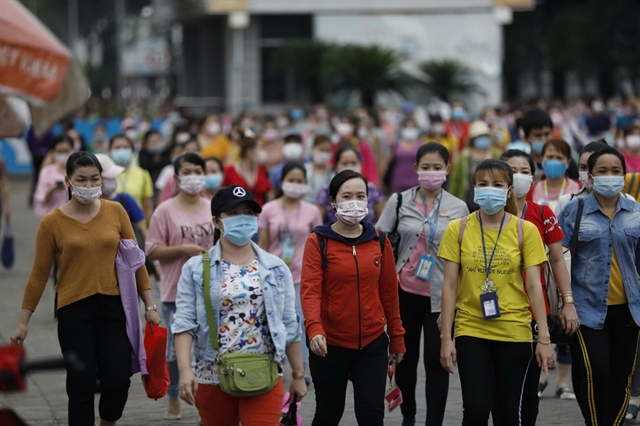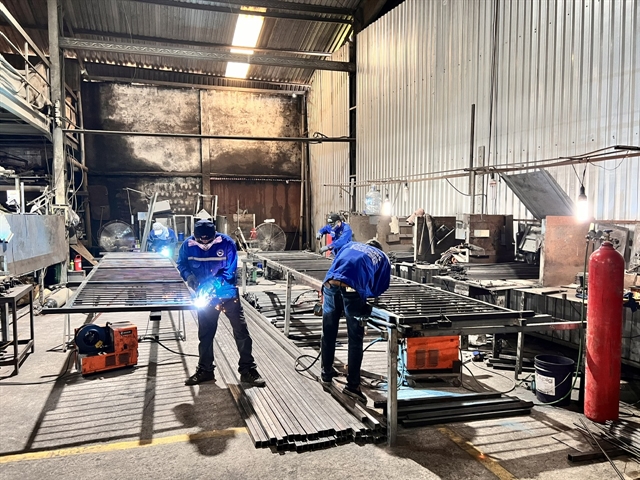 Society
Society

 |
| Nguyễn Đức Nhã, director of SATAMO Co Ltd, a manufacturer and supplier of mechanical products in HCM City. Photo courtesy of Nhã |
Many people from provinces around Việt Nam have been migrating to HCM City and other big cities to work in factories. However in recent years, more and more migrant workers are moving back to work in their hometowns.
Việt Nam News asked Nguyễn Đức Nhã, director of SATAMO Co Ltd, a manufacturer and supplier of mechanical products located in HCM City’s Hóc Môn District, on his assessment of this trend.
What do you think about the trend of migrant workers moving back to their hometowns to work?
More and more migrant workers have preferred quitting their jobs in big cities and returning to their hometowns to work at local industrial parks.
I think there are several reasons for this. One big reason is the rising development of industrial parks in provinces across Việt Nam, even smaller ones. This is creating plenty of job opportunities for people who want to work near their families.
The cost of living in big cities such as HCM City is getting more and more expensive. Rising population means that commuting in big cities is massively slowed down by traffic jams, and air pollution is also a problem.
Many factories are also moving to provinces with attractive land rent fees and favourable policies, especially for local workers.
It is understandable that workers trend towards solutions that benefit them most. When they can work near their homes as opposed to having to travel to another locality, it helps lessen both the financial burden (because they get to save on daily expenses and housing fees) and the emotional stress.
They can enjoy being able to make a decent income while still caring for their families.
 |
| Workers returning home after work at a factory in Bình Dương Province. Many migrant workers have preferred returning to work for factories in their hometowns. - VNS Photo Văn Châu |
How does this affect enterprises in big cities?
This poses a challenge for large industrial parks and enterprises in big urban areas, namely a labour shortage.
A business may have a harder time competing with those from other provinces in terms of keeping their employees.
An unstable, shifting workforce means that production capability is hindered and is susceptible to interruptions, affecting a business’s ability to fulfil customer orders.
The fact that experienced workers can leave also means that a business may have to further endure the costs of recruiting and training future workers, and the general workforce quality is not stable, which can harm profit.
Additionally, when workers come and go, a firm can struggle to educate everyone on their workplace culture, which can lead to complications. Conflicts can also arise if a firm ends up adjusting and providing an uneven amount of benefits for migrant employees in order to keep them, when compared to local employees.
Regarding this problem, what should businesses in big cities and provinces do to attract workers back to them?
There are many solutions and policies to tackle this challenge. For example, businesses should figure out how to optimise their operation and productivity, and cut costs, which would allow them to increase the income of their employees.
At the same time, generally, employees should receive more work benefits so they are more committed, loyal and contribute more to their workplaces. If they love their jobs, they would stick with them for longer.
If possible, businesses can invest in housing programmes and policies to better support the lives of employees, so that their living conditions in big cities can be improved.
 |
| Workers at SATAMO Co Ltd. It is important for businesses to keep their employees with attractive benefits. - Photo courtesy of Nhã |
How can the authorities help businesses deal with the trend of workers moving out of big cities?
Traffic infrastructure development and the improvement of public services are important to create better conditions for both employers and employees.
Businesses should receive financial support and favourable tax policies so that they can make investments in industrial parks and develop the manpower in these big cities. Policies to encourage industrial development in cities and provinces are also important.
All of these help businesses improve their operations and create a better workforce balance between urban and rural areas. VNS